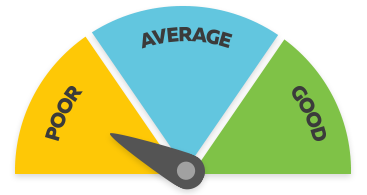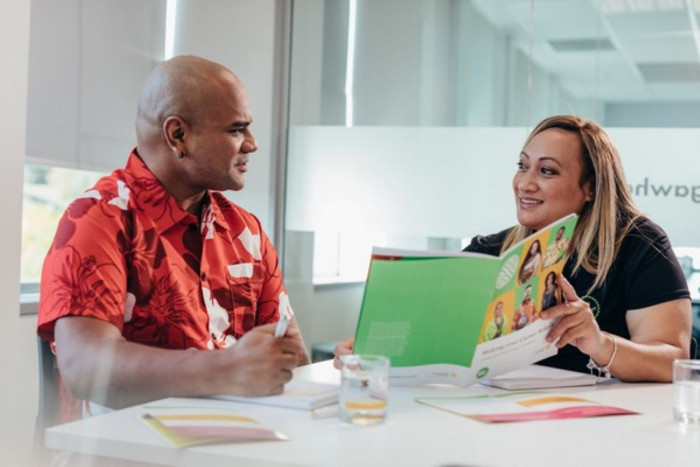Career Consultant
Kaitohutohu Umanga
Alternative titles for this job
Career consultants help clients with career decision-making and development, job hunting, and returning to work after illness or accident.
Pay
Career consultants working in schools can earn
$51K-$103K per year
Source: Ministry of Education, 2022-2025
Job opportunities
Pay
Pay for career consultants varies depending on their experience and qualifications.
Career consultants who work in secondary schools as career advisers
- Career advisers in secondary schools can earn $51,000 to $90,000 a year.
- This will rise to between $61,000 and $103,000 in December 2024.
Teachers appointed as careers adviser also receive an allowance of $2,250 a year.
- Source: Ministry of Education, 'Secondary Teachers' Collective Agreement 2022 -2025.'
Self-employed career consultants
Twenty five percent of career consultants work part time. Fifteen percent are self-employed. Their income depends on the hours they work and the success of their business.
(This information is a guide only. Find out more about the sources of our pay information)
What you will do
Career consultants may do some or all of the following:
- help people make choices about education, training and work
- help people use career planning tools and resources and labour market information, identify skills and career values, and develop goals and action plans
- assist people to develop a curriculum vitae (CV) and advise them on interview and job search techniques
- arrange work experience and job placements
- develop and run training programmes and workshops on career development
- provide in-house coaching for people on career development.
Career consultants may also:
- work as part of a team assisting people to return to work after accident or illness (vocational rehabilitation)
- become accredited to administer psychometric and other assessment tools and interpret results.
Skills and knowledge
Career consultants need to have:
- knowledge of various counselling and assessment techniques
- the ability to evaluate their clients' needs
- up-to-date knowledge of the education and training sectors, and local, national and global labour markets
- understanding of social, economic and cultural issues
- knowledge of how organisations are structured (organisational dynamics) and how they work best
- understanding of employment matters, such as Equal Employment Opportunities and recruitment strategies.
Working conditions
Career consultants:
- usually work regular business hours
- work in offices and private clinics
- may travel to visit prisons, schools, marae, and other community centres.
Entry requirements
To become a career consultant you usually need to have a diploma, graduate diploma or Master's degree in career practice, career development or employment support.
Degrees in fields such as psychology, human resource management, education or social work are also useful.
Membership of a relevant professional body is recommended.
Training recommended for life coach work
There are no specific entry requirements to become a life coach.
However, a diploma or other qualification from a professional coaching school is recommended. Courses should involve at least 60 hours of practical and theoretical training.
Secondary education
A tertiary entrance qualification is required to enter further training. Useful subjects include English, languages, geography and history.
Personal requirements
Career consultants need to be:
- excellent communicators
- able to relate to people from a range of cultures and backgrounds
- non-judgemental and able to keep information private
- positive, and able to appreciate people’s strengths
- patient and persistent
- good at research.
Useful experience
Useful experience for career consultants includes:
- teaching
- social work
- an employment-related job, such as human resource management or recruitment
- volunteer counselling work.
Registration
Membership of an organisation such as Career Development Association of New Zealand (CDANZ) or Careers and Transition Education Association (Aotearoa) (CATE) is recommended.
Find out more about training
- Career Development Association of NZ (CDANZ)
- info@cdanz.org.nz - www.cdanz.org.nz
- International Coach Federation (ICF) Australasia
- (09) 887 0242- www.icfaustralasia.com
Check out related courses
What are the chances of getting a job?
Chances of getting a job as a career consultant are poor because:
- few people are willing to pay for careers advice
- few organisations hire full-time career consultants, and there is low turnover of staff
- organisations tend to only employ career consultants when there are industrial issues such as staff redundancies and retention problems
- careers advisors in schools often combine part-time work in this role with work as a subject teacher.
Twenty five percent of career consultants work part time.
According to the Census, 585 career consultants worked in New Zealand in 2018.
Types of employers vary
Career consultants may work for government or private organisations, such as:
- Work and Income
- schools, and tertiary education providers
- job training and recruitment agencies
- independent career counselling and coaching agencies.
Some career consultants work on contract for:
- vocational rehabilitation agencies such as Accident Compensation Corporation (ACC) and Workbridge
- organisations that provide Employee Assistance Programmes (EAP) where staff can access support at their employer's cost
- large organisations and corporate clients.
Fifteen percent of career consultants are self-employed.
Sources
- Career Development Association of New Zealand website, accessed September 2016, (www.cdanz.org.nz).
- Careers and Transition Education Association (Aotearoa) website, accessed September 2016, (www.cate.co.nz).
- Ministry of Business, Innovation and Employment, '2006-2014 Occupation Data' (prepared for Careers New Zealand), 2015.
- Schmidt, A, 'Multi-disciplinary Rehabilitation Teams', Ezine, Winter 2016, Vol 20, Issue 2, Career Development Association of New Zealand, (www.cdanz.org.nz).
- Stats NZ, '2018 Census Data', 2019.
(This information is a guide only. Find out more about the sources of our job opportunities information)
Progression and specialisations
Career consultants may progress to set up their own career consultancy business or move into management.
Career consultants may specialise in:
- vocational rehabilitation
- life coaching.
Last updated 19 January 2024


